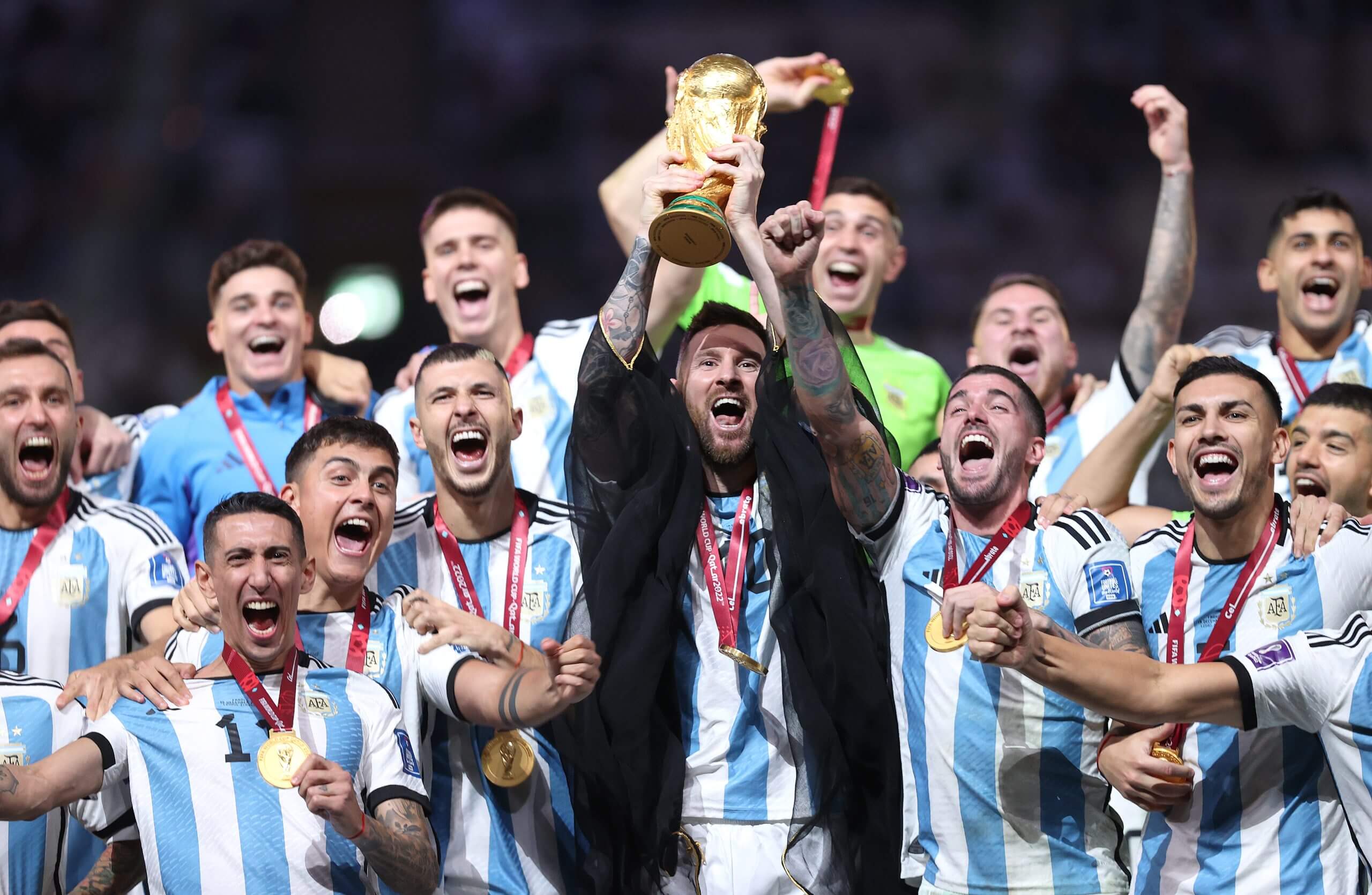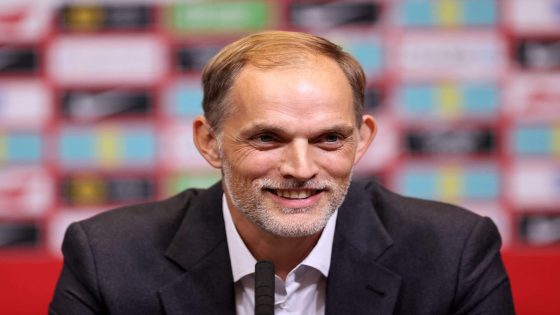England will face Serbia in qualifying for the expanded 48-team World Cup in 2026 in the United States, Canada and Mexico.
Thomas Tuchel officially begins his role as England manager in January and his first competitive matches will come in March.
As well as Serbia, England will face Albania, Latvia and Andorra in Group K.
Wales have been drawn against Belgium while Scotland will be in a group with the loser of the Nations League quarter-final between Portugal and Denmark. The Republic of Ireland will face the winner of that tie while Northern Ireland will take on the winner of the Germany vs Italy quarter-final.
The European section of qualifying is split into 12 groups (six groups of five and six groups of four) with 16 teams going through to the World Cup.
The 12 group winners plus four teams from the playoffs will qualify. The playoffs will be made up of 12 runners-up in the groups plus four teams from the Nations League.
The draw was made at the headquarters of FIFA in Zurich, Switzerland on Friday morning.
How does 2026 World Cup qualifying work?
There are more groups populated with fewer teams for European qualifying than before due to the expanded World Cup, which will see 48 teams competing in the United States as opposed to 32 in previous editions.
There are 12 qualifying groups, of which six have five teams and the other six have four teams.
For the national teams drawn into a group of five, their qualifying campaign will begin in March, while the groups of four won’t start until September. All of the matches will conclude in November 2025.
In total, 16 teams will qualify for the next World Cup, with the 12 teams that finish top of their group automatically qualifying for 2026.

The teams that finish second in the group stages will enter a play-offs with the four highest-ranked group winners of the 2024-25 UEFA Nations League that did not finish in first or second in the group stages.
From the 16 teams that enter the play-offs, they will be drawn into four groups and the matches will be played in single-leg semi-finals followed by single-leg finals. The play-offs will take place in March 2026.
Why are there some four-team groups and some five-team groups?
This is due to the Nations League.
The four national sides who win the Nations League quarter-finals in March will go into the four-team groups because the Nations League finals are being played in June.
As a result of their involvement in the Nations League early next year and potential in June, the four-team groups will not begin their World Cup qualifying campaign until September.
Weather — yes, really — also played a role in who plays who with inclement conditions restricting a maximum of two of Estonia, Faroe Islands, Finland, Iceland, Iceland, Latvia, Lithuania, and Norway allowed to be in the same group, in an attempt to ward off fixture postponements.
Geography also meant far-flung Kazakhstan, Azerbaijan, and Iceland were limited in who they could face, as UEFA aims to avoid too many long, arduous trips across Europe while politically, Ukraine and Belarus, and Gibraltar and Spain could not be put in the same group. Similarly, Kosovo could not be drawn with Serbia, and Bosnia-Herzegovina.
When are the games going to be?
The qualification campaign will begin in March and end in November, with fixtures scheduled in June, September and October, with the play-offs taking place in March 2026.
- March 21-25
- June 6-10
- September 4-9
- October 9-14
- November 13-18
The World Cup will then kick off on June 11, 2026 in Mexico City.
(Top photo: Ryan Pierse/Getty Images)





